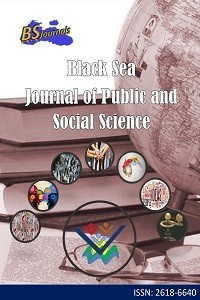Information and Communication Technologies and Advanced Media Innovations in Teaching, Training and Skill Development for Entrepreneurship and Empowering of Rural Women
Information and Communication Technologies and Advanced Media Innovations in Teaching, Training and Skill Development for Entrepreneurship and Empowering of Rural Women
Aknowledge, values,
behavior and lifestyles required to achieve sustainability. There is a common
international context of rapidly changing globalized economies, communications
and human cultural perspectives, where knowledge is a key resource, and where
the need for skilled workforces and active citizens is making increasing
demands on education at all levels. Using applications of Information and
Communication Technology (ICT) for poverty reduction and for the economic
empowerment of poor women and men in rural areas have been experienced world
wide. Tele-centers are making tools available for villagers. It can provide
rural people with information related to their business, reduce the costs of
money transfers, and put microfinance within the reach of poor men and women.
Tele-center is a public facility that offers shared access to Information
Communication Technology Applications. The purpose of this talk is to introduce
the Rural ICT activities in Iran and specially reviewing the results of
Socio-Economic Impacts of Rural Tele-centers in Iran, in order to find how
Iranians use these facilities for poverty reduction and for economic
improvement of poor women and men in rural areas. While getting the essential
knowledge to those who need it most remains difficult and expensive, much
optimism has been generated as a result of the increased growth and
sophistication of new electronic information services. Even in remote rural areas,
Information and Communication Technologies (ICTs) are offering new options to
deliver knowledge and information to villagers directly and indirectly through
knowledge intermediaries. Evidence shows
that even small efforts to put rural telecommunication policy on the national
agenda can have significant results. In
this chapter, author state a brief history about complementary of agricultural,
industrial and information revolutions in history of humankind, and importance
of rural development and human development and situation of women specially rural women in these processes, a
brief history of Telecommunication and Internet and comparison between
face-to-face education with Technology-based education, concepts of sustainable
development and rural development, importance of ICTs in re-shaping of human
societies, concept of empowerment of rural women, situation of women and girls
in Iran specially in rural regions, gender and agriculture in information society, loops of household production in
rural regions with emphasis on women works, model of empowerment of rural women
through employment, different approaches and rationale for supporting women's
entrepreneurship in different schools of development and growth, a brief
statement of some national and international projects that have focused on
ICTs for rural women in different
countries and continents, potential strategies and approaches for improving
access of women to ICTs, five areas that need to be targeted in any ICTs
project to create an environment where women stand to directly benefit from
ICTs as much as men, state situation of rural women in Turkey in accessing to
ICTs in their development affairs,
livelihood information cycle in rural regions, important informational needs of
rural people, system elements of implementing
ICTs for diffusion of innovations in rural regions etc. In the author
presented conclusion and recommendations from discussions in situations of
women conditions in rural regions.
Keywords:
ICTs, Rural, Women, Education, Empowerment Entrepreneurship,
___
- Carmenado IDIR, Díaz-Puente JM, Blanco JLY. 2011. The integration of project competences within the post-graduate programme: a case study of the International Masters in Rural Development. Procedia Soc Behav Sci, 15: 96–110.
- Golmohammadi F. 2010. Applying (ICTs) for Entrepreneurship and Empowering of Rural Women. J Infor Technol Agri, 4: 1.
- Golmohammadi F. 2011. Rural Tele-centers in Sustainable Agriculture and Rural Development in Iran: Situations and Problems (Case Study: South Khorasan Province – East of Iran). Proceedings of 5th International Conference on Information and Communication Technologies in Agriculture, Food and Environment, 2: 707- 725.
- Jalali AA, Okhovvat MR, Okhovvat M. 2011. A new applicable model of Iran rural e-commerce development. Proc Comp Sci, 3: 1157-1163.
- Mohammed AH. 2012. Empowering the Online Education for Rural Community through Correlated Content Development. Procedia Soc Behav Sci, 67: 16–25.
- Mottier I. 1999. Impacts of Technology Education: Introduction to the Conference. Proceedings of PATT-9 conference, 9: 4.
- Stanef MR, Manole AM, Militaru M. 2012. Lifelong learning a way to reduce development gaps between rural and urban areas. Procedia Soc Behav Sci, 46: 4508 – 4512.
- Yayın Aralığı: Yıllık
- Başlangıç: 2018
- Yayıncı: Sevtap TIRINK
